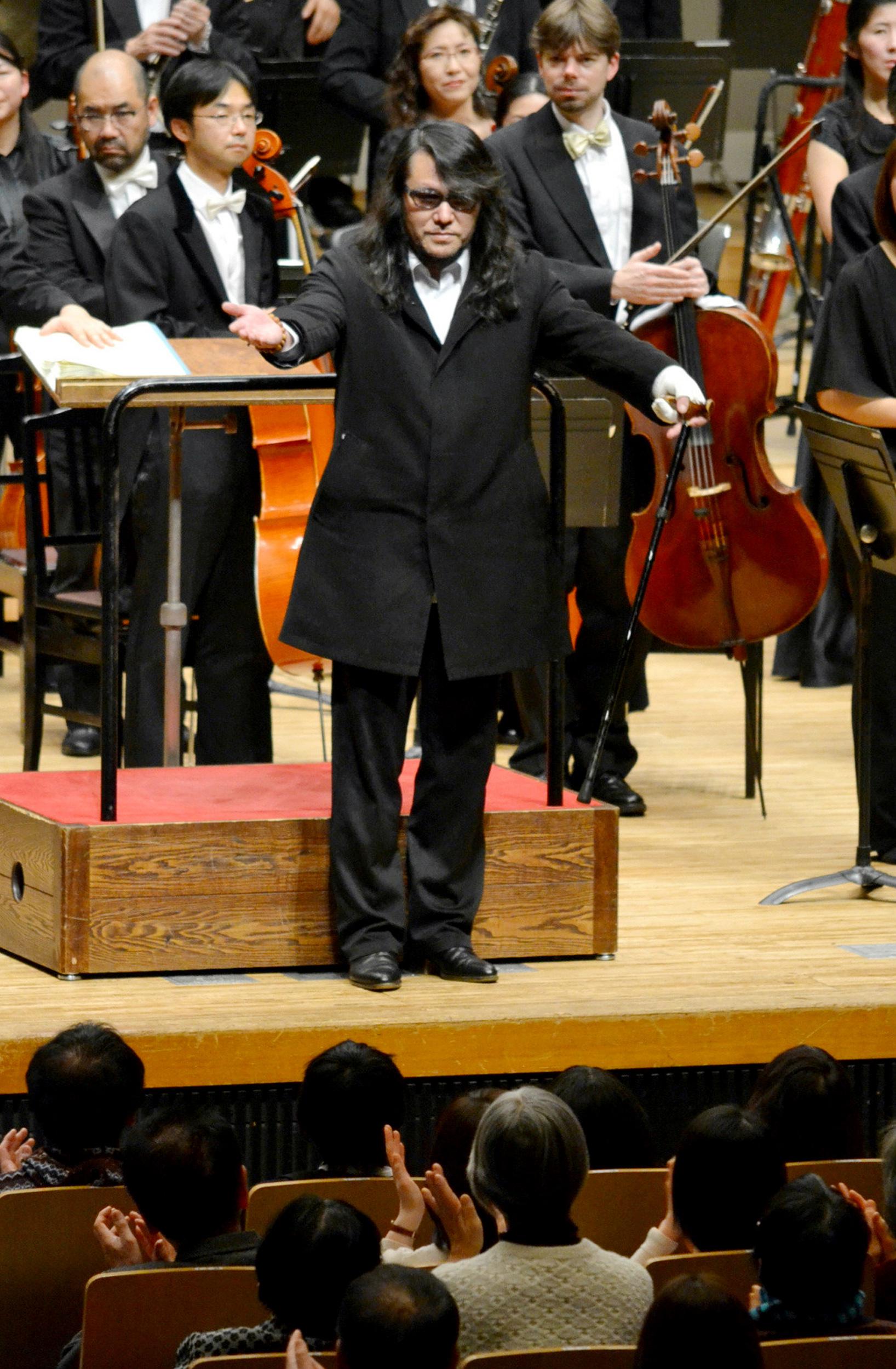It’s been an up and down couple of weeks for Japanese composer, Mamoru Samuragochi. On the downside, Samuragochi, who has been dubbed the “Beethoven of Japan,” was outed by a part-time college music teacher as a fraud, as the unknown teacher actually wrote more than 20 songs for Samuragochi over the past decade. It was a stunning fall from grace for a man who, the New York Times writes, “was celebrated as a prolific musical genius whose compositions appeared in popular video games and the competition routine of a top figure skater in the coming Sochi Olympics. His deafness won him praise as Japan’s modern-day Beethoven.”
Under pressure from the ghostwriter, Takashi Niigaki, Samuragochi confessed last week that he had not written most of his most popular songs. But Niigaki wasn’t done with the bombshell-dropping and accused the national musical treasure of not being deaf at all. Here’s more on Niigaki’s accusation from the Times: “Mr. Niigaki said that he had regular conversations with Mr. Samuragochi, who listened to and commented on his compositions. Mr. Niigaki said the deafness was just ‘an act that he was performing to the outside world.’”
So where’s the upside? On Wednesday, Samuragochi said he can, in fact, hear, but “insisted that he did used to be deaf,” according to Agence France Press. He says, his hearing has improved over the past three years, but that he couldn’t hear anything until then. “In recent years I have started to be able to hear a little bit more than before… since about three years ago I can hear words if people speak clearly and slowly into my ears,” Samuragochi said in a statement. Given Samuragochi’s quickly accumulating track record for not-quite-telling the truth, the true extent of his hearing loss and recovery remains to be seen. But, there’s more good news for Samuragochi, according to the Financial Times.
The controversy has generated massive news coverage in Japan and, it seems, attracted Mr Samuragochi new fans – or at least some curious listeners who want to hear what the fuss is about. Symphony No 1: Hiroshima, his best-known work, became the number-one selling classical music CD in the country during the week of Feb 3-9, according to Oricon, a music-sales tracker. The work was Japan’s 27th-best-selling CD overall, storming up the chart after having fallen out of the top 300 ranked by Oricon.
